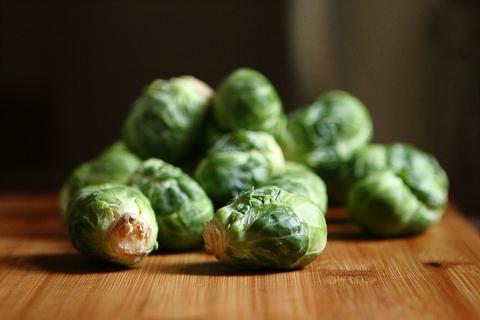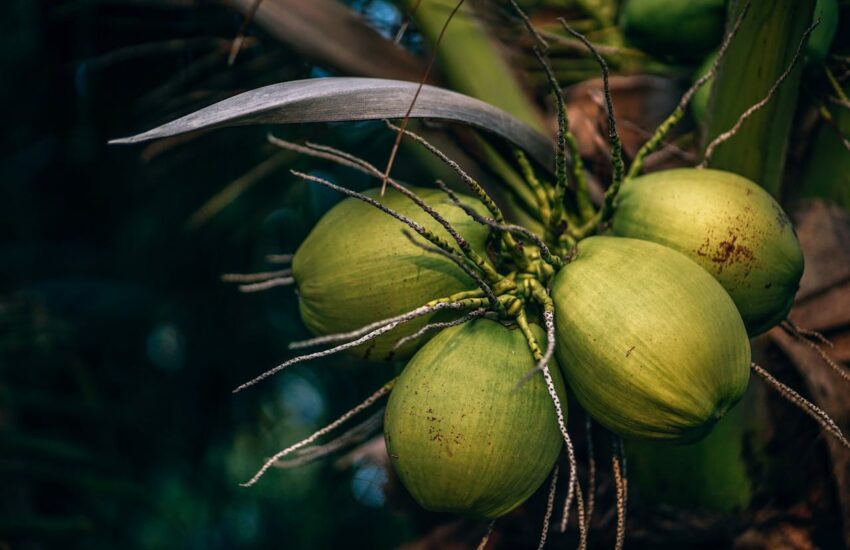Load Up On This Vegetable This Spring
My readers in the Western portion of the United States noticed that not a whole lot of snow fell this year (making them wonder if they even had a winter).
My readers on the East Coast have noticed it’s been a wetter and snowier winter than usual. And here in North Carolina…it was truly all over the map with more snow and heat than usual.
Now that winter is over, I know a lot of my readers are looking forward to spring. They’re also looking forward to eating the bounty of fresh fruits and vegetables the earth will offer.
And if you’ve been following my blog and emails for any amount of time, you might have noticed something strange…
I’ve never once written about brussels sprouts.
Truth is, the reason I haven’t written about them has nothing to do with how much I like – or don’t like – brussels sprouts (hint: they’re one of my favorites). It’s just with all the brilliantly nutritious foods on the planet, I simply haven’t gotten around to writing about them.
Well, that all changes today.
Get ready to see exactly why you should stock up on brussels sprouts this spring!
You’re About To Discover How Brussels Sprouts Could Change Your Life
Can a tiny little vegetable resembling a baby cabbage really change your life?
I would argue if you replace an unhealthy food with brussels sprouts, then the answer is absolutely yes.
And you’ll want to do that, because brussels sprouts are statistically one of the healthiest foods on the planet.
Brussels sprouts fall in the top 20 healthiest foods based on their ANDI (Aggregate Nutritional Density Index).
This means they’re one of the healthiest foods on the planet based on their phytonutrient content (which equates to the amount of vitamins and minerals in relation to how many calories are in the food).
That’s what makes brussels sprouts such a wholesome food – and one that could seriously change your life.
Let’s delve deeper, shall we?
1 – Could Help Fortify the immune system: In another article I wrote, I talked about how researchers recently discovered how sulfur-containing compounds inside of broccoli might help increase immunity.
If you weren’t aware, the reason brussels sprouts and other cruciferous vegetables have that distinct, bitter taste is because of their sulfuric compounds.
It’s these same compounds that are helpful at helping boost the immune system. In fact, these sulfuric compounds are believed to be some of the most powerful, naturally-occurring cancer fighters on the planet.
This is all due to a process where the compound sulforaphane stops an enzyme called histone deacetylase (HDAC). When HDAC runs rampant, it’s been shown to allow for the proliferation of cancer cells in the body.
Since these processes are so powerful, research is underway to see how using sulforaphane-containing foods could heighten the ability of the immune system.
2 – Could Help Maintain Blood Sugar: One of the most common problems Americans deal with is keeping their blood sugar at healthy levels.
Inside of each brussels sprout is an antioxidant called alpha-lipoic acid. This is one of I’ve written about before, and it has amazing blood sugar improvement powers.
Multiple studies have indicated alpha-lipoic acid has an extremely strong effect on lowering high blood glucose levels, as well as helping improve your body’s insulin sensitivity.
It’s even been shown to help relieve the pain associated with diabetic neuropathy.
Now most studies on alpha-lipoic acid did not come from people eating foods containing the compound.
However, one additional note on how brussels sprouts could help maintain blood sugar is by talking about how they affect the glycemic index.
Brussels sprouts, being low in both sugars and carbohydrates, have a low glycemic index. This means when you eat it your blood sugar won’t spike and your insulin levels will remain relatively even.
3 – They Can Help Fight Inflammation: I hate inflammation and I think you should too.
That’s because inflammation has been linked to some of the most common and dangerous conditions on the planet.
And, surprisingly, brussels sprouts are one of the best natural inflammation fighters out there.
There are quite a few different nutritive compounds in brussels sprouts that help fight inflammation.
One of the main compounds is called glucosinolate. Glucosinolates help your body get inflammation under control. So, when inflammation runs a bit high, glucosinolates help bring that inflammation down.
One of the most interesting things about the glucosinolates in brussels sprouts is they actually transform in your body to become an even better inflammation fighter.
According to the World’s Healthiest Foods.
“The glucobrassicin found in Brussels sprouts can get converted into an isothiocyanate molecule called ITC, or indole-3-carbinol. I3C is an anti-inflammatory compound that can actually operate at the genetic level, and by doing so, prevent the initiation of inflammatory responses at a very early stage.”
Another really cool thing about brussels sprouts is the fact they’re loaded with omega-3 fats. Just 1.5 cups of brussels sprouts have 500 grams of omega-3 fats (which comes in the form of alpha-linolenic acid, or ALA).
As you probably know already, omega-3s are some of the most powerful inflammation fighters on the planet; and the fact brussels sprouts give you a third of the required amount of ALA needed is an obvious reason to keep them on the menu!
4 – Plus, It Does All This Too: In addition to helping with everything you just read about, brussels sprouts have also been shown to help with the following:
- Supporting the cardiovascular system
- Improving digestive function
- Boosting vision
- Anti-aging
- Assisting in the body’s natural detoxification
And much more!
When it comes to preparing brussels sprouts, steaming and blanching are two of the best ways to prepare them. That’s because when you choose these preparation methods, it helps preserve more of the nutrients.
However, that doesn’t mean you shouldn’t bake, fry, or roast them…
Want to know one of my favorite brussels sprout recipes? Check it out by clicking on the picture below.
Talk soon,
Dr. Wiggy
www.HealthAsItOughtToBe.com

